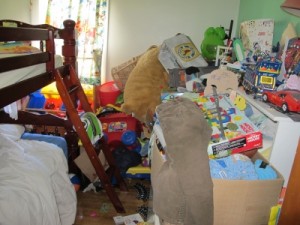Last Saturday, I was on a hike with my sister. We talked about many topics near and dear to our hearts, and at one point Attachment Parenting came up. I was explaining the studies that give it credibility, and why parents chose to raise their children with AP as their guide despite cultural backlash.
Attachment Parenting is based off of Attachment Theory. Attachment Theory states that in order for a human to feel secure, happy and loved they must have close, loving, and trusting relationships with the other humans closest to them. There are many books on it now, but the classic which stands above the rest is Ashley Montagu’s Touching: The Human Significance of the Skin. Most of AP is applied in the first few years in order to build a stable, strong parent/child relationship for later childhood and teenage years.
A lot of research went into Montagu’s book, both in the realm of psychology and culture. Decades of discoveries made in science which had been hitherto largely ignored (and are still today) by the westernized world about the need human beings have for touch through their entire lives, especially in infancy, are illuminated in his book. His book became foundational in the emergence of Attachment Parenting, which most associate with Dr. and Mrs. Sears’ The Attachment Parenting Book.
In my studies of AP, I have come to an understanding of the way common parenting solutions such as letting children ‘cry it out’ create certain traceable insecurities in later life. The lines are clear to me, and Attachment Parenting rings true. Supporting science is nice, but completely unnecessary for me at this point.
As I explained to my sister about the basics of AP and the psychology behind it, a man nearby in the hot pools interrupted.
“You turned out alright though, didn’t you?”
I stopped mid-sentence, a little baffled that a stranger had been listening in.
“Your parents didn’t use it and you turned out alright, right?”
I had no idea how to respond. Yes; my parents didn’t use Attachment Parenting. Yes, I consider myself a pretty ok person all around, and yes my parents are wonderful parents who raised me well.
I shrugged. “Yeah, I guess,” I answered, but in my mind I knew that I could say more.
“Sometimes people rely too much on what science says is better,” he concluded with finality.
What should I have said?
“Yeah, I turned out alright. I lived through seven years of suicidal depression; it still haunts me and I have scars to this day. I’m lucky, I found a friend who stayed by my side the day I would have drowned myself. I’m blessed; I had a reason to live last year when the knife in my closet beckoned all summer. Someone I love made me promise not to hurt myself any more years ago. He held me in his arms while I cried when I had been taught from the time I was a toddler that no one wanted to see my tears. He gave me his love even when I was weak, when I had believed that I wasn’t worth loving unless I was always strong. I’m blessed with memories of listening to my mom cry through the bathroom door when I was barely old enough to imagine her not being perfect, and I remember the need to go hold her in my arms. I was given opportunities to relearn some of the things that misguided discipline styles had taught me before I could speak fluently. I was able to be that shoulder to cry on to many whom I loved, and I learned that everyone needed that comfort.”
No, I don’t believe that depression should be the norm. Sadness and discouragement come and go, but I believe that our culture’s practices in child-rearing and lifelong interpersonal relationships blow it out of proportion by creating insecure, emotionally unhealthy adults. Yes, I believe my parents did their best and they were good parents. Yeah, I turned out allright.
But no, not all of it was right. It is each new generation’s duty to improve upon the knowledge of the prior generation. Attachment Parenting isn’t perfect, but it’s several steps in the right direction to make that improvement. I believe our world would be a better place if it were the norm. I believe more people would be emotionally healthy, interdependent in the right ways, and secure in their lives.
And sometimes, science gives us the arrow pointing the right direction when we’ve forgotten what people outside of westernized societies know and do instinctively.
